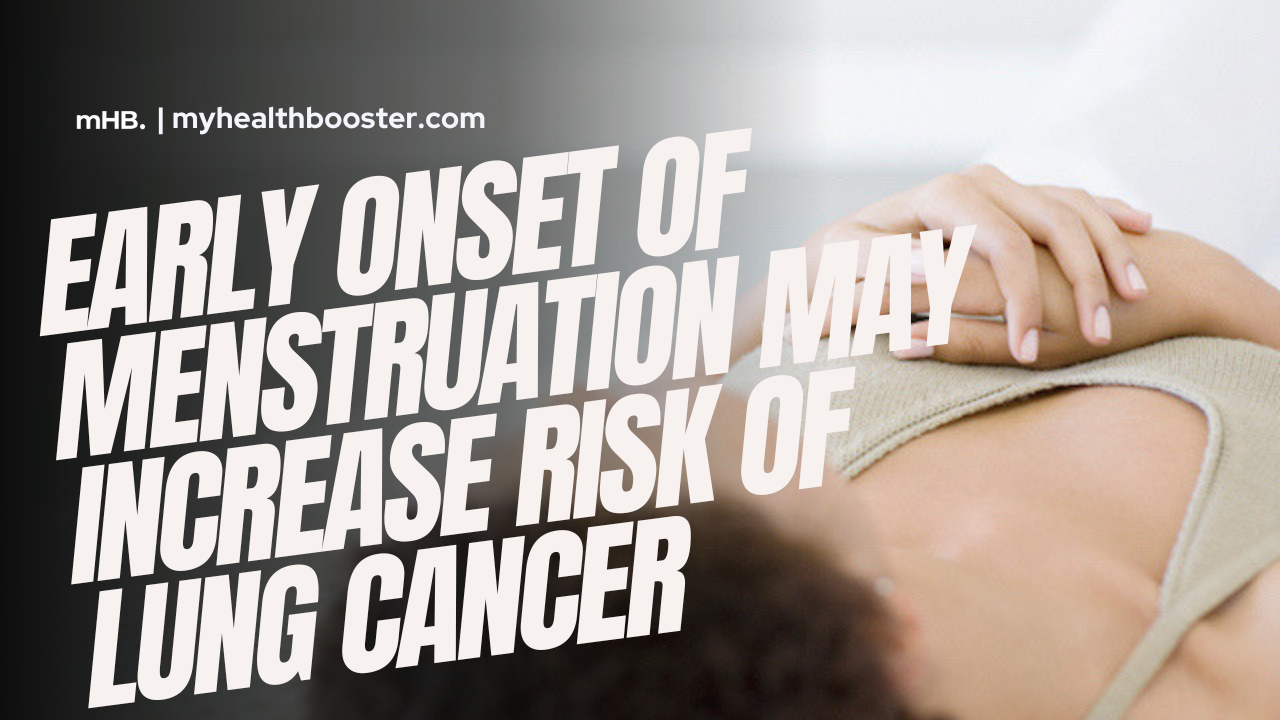A recent study which was presented at the International Association for the Study of Lung Cancer 2023 World Conference hints that early menopause, a shorter reproductive span, and having your first child at a younger age can all be linked to a higher risk of lung cancer in women.
According to the lead researcher, Y. Zhang, MD, Ph.D., an associate professor at Second Xiangya Hospital, Central South University in Changsha, China, these findings are crucial for doctors and scientists to understand the potential risk factors for lung cancer among the women population. “In subpopulations with specific genetic risk factors, early menarche, early menopause, and a shorter reproductive lifespan are associated with greater chances of incident lung cancer, especially non-small-cell lung cancer (NSCLC), in subpopulations with genetic risks and lifestyle choices,” he argued.
Why is the condition increasing in women?
The American Lung Association suggests that the rate of new instances of lung cancer has increased by 79 percent amongst women over the past 44 years whilst it has decreased by 43 percent for men.
Also, Patricia Silveyra, Ph.D., writer of a 2021 paper on the role of sex hormones in lung cancer, says the trend is not exclusive to the United States; in fact, rates of lung cancer in women in many industrialized countries have overtaken those of breast cancer. The new study did not include Dr. Silveyra.
“There have been many theories as to why this is happening, such as women smoking more than they used to and different potential cancer-causing agents that women are exposed to, but neither of those has been proven to be true,” she said.
However, though smoking has been named as a top risk factor for lung cancer, epidemiological argues that women who do not smoke also stand twice the chance of men being affected by the condition.
What’s estrogen’s role as a risk factor?
Despite contradicting evidence, a lot of scientists think estrogens may contribute to women’s lung cancer risk. According to a review of studies printed in the journal Cancers in June 2023, it is unclear if the hormone aids or slows down the development of lung cancer.
However, there are also a number of studies that present estrogen’s preventive advantage against lung cancer in women who have not had their ovaries removed. Some studies also indicate that estrogen accelerates the growth of lung cancer in clinical practice and in experimental models.
Early menopause, early menstruation, and shorter reproductive lifespan are linked to higher lung cancer risk
Researchers in the prospective study to investigate the theory observed and analyzed 273,190 women from the UK Biobank. They examined a number of reproductive variables;
- Lifespan of reproduction
- Stillbirths
- Miscarriages
- Age at menstruation’s onset and menopause
- The first live births’ age
- How many live births there were
- Abortions
- History of an oophorectomy or hysterectomy
- Hormone replacement treatment or oral contraceptives are examples of external hormone exposures.
- The researchers found that a number of reproductive factors, including the following, significantly increased the chance of incident lung cancer in women:
In the end, researchers were able to conclude that certain variables could directly be linked to lung cancer. The findings are below;
- Women who experienced menopause at a young age—at 46 or younger—had an RR that was 49 percent higher, and those who did so between the ages of 47 and 49 had an RR that was 42 percent higher.
- Women with reproductive spans of 32 years or less had RRs that were 42 percent higher, while those with spans of 33 to 35 years had RRs that were 24 percent higher. You must note that reproductive span is the length of time between the start of your period and menopause.
- Women who were between 21 and 25 years old when they gave birth for the first time had an RR that was 63% greater than those who were 20 years old or younger.
How to reduce your risk for lung cancer
According to the Centers for Disease Control and Prevention (CDC), you can lower your risk for lung cancer simply by
- Avoiding smoking. Per its statistical data, about 80 to 90 percent of lung cancer deaths are related to cigarette smoking. So reducing smoking altogether, or quitting if you already do it, is the most crucial thing you can do to prevent lung cancer.
- Don’t smoke around others. Secondhand smoke is smoke that comes from the cigarettes, cigars, or pipes of other persons. Eliminate smoking from your car and home.
- Test for radon in your house.
- When possible, stay away from recognized carcinogens. Radon, asbestos, formaldehyde, and processed meats are a few examples.
